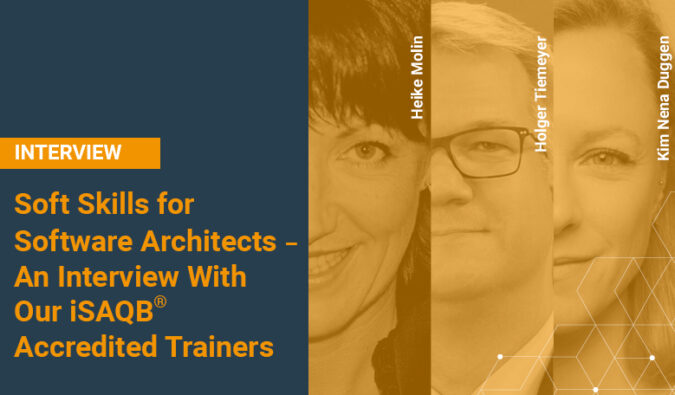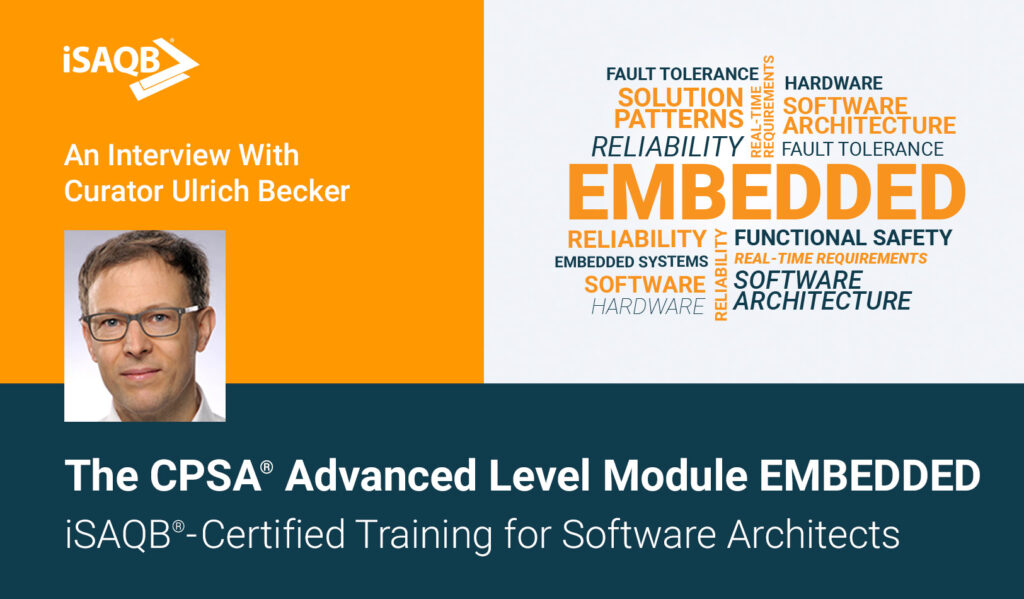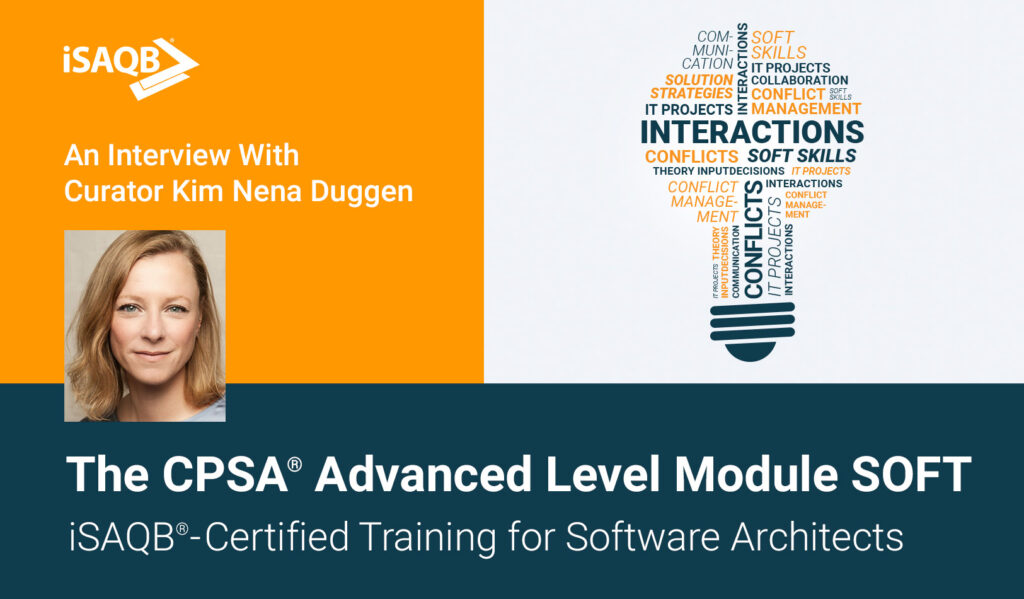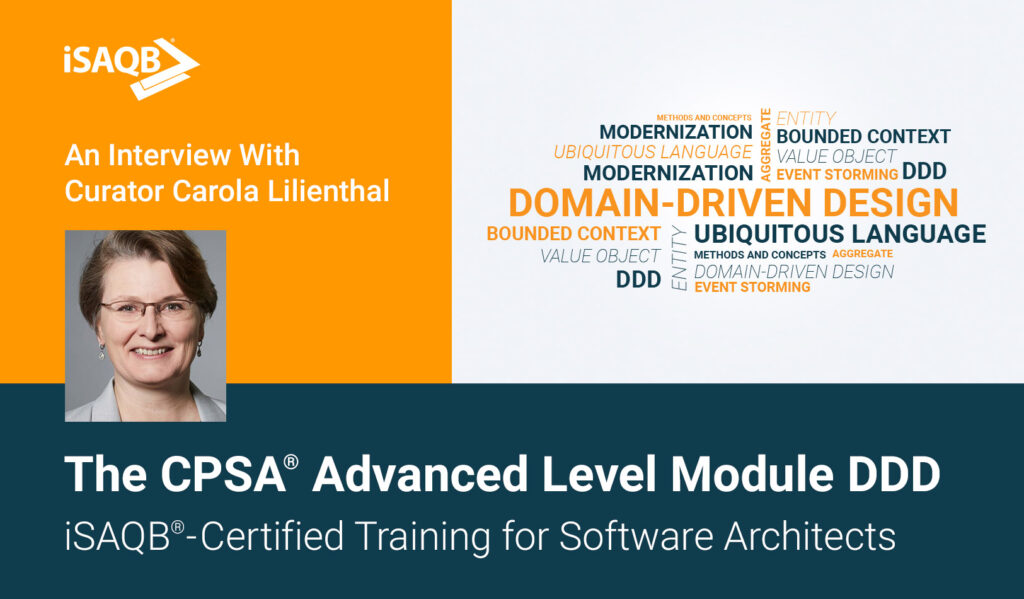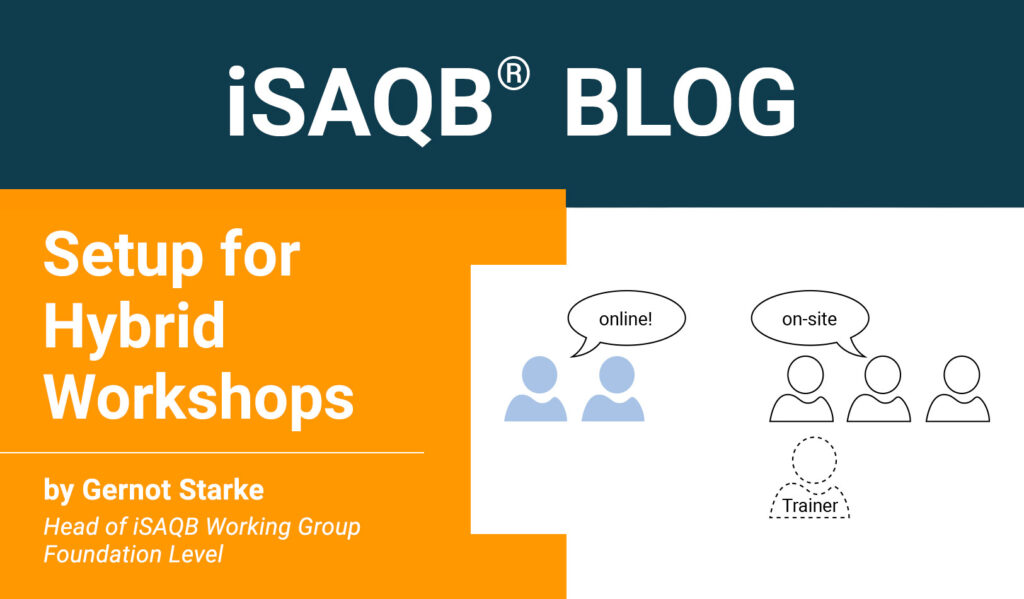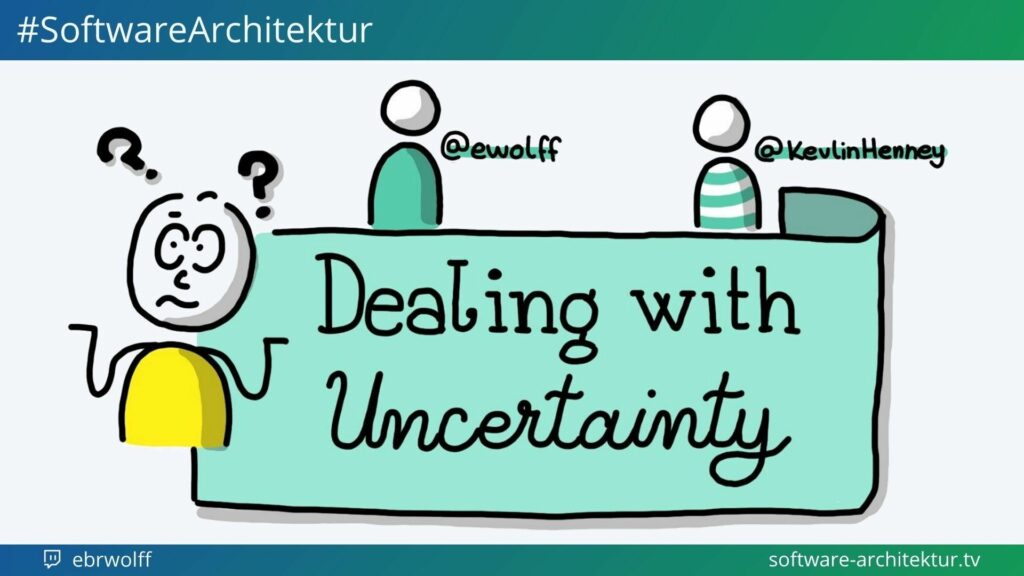Soft Skills for Software Architects
An Interview With Our iSAQB® Accredited Trainers
A myth: The iSAQB seminars – regardless of Foundation or Advanced Level – primarily rely on hard skills – technical know-how that modern software architects should possess in order to do their job well.
At the same time, it has long been clear to industry insiders that IT projects rarely fail because the people involved are technically incompetent, but rather because there are interpersonal problems. Misunderstandings regarding requirements, conflicting goals, seemingly insurmountable resource bottlenecks and the like.
Years ago, this practical experience led to the Advanced module SOFT (Soft Skills for Software Architects) teaching communicative topics in particular, but also other modules such as AGILA and DDD do that.
For this article, we asked trainers of the SOFT module which topics are particularly important to them and which myths in the field of soft skills must finally be dispelled.
In this blog post on the topic, Heike Molin and Holger Tiemeyer (Soft Skill trainers, among other things) classify the most important soft skills for software architects for us and debunk further myths.
Kim Nena Duggen: In your opinion, which content of the Soft Skill curriculum is the most helpful/important for software architects in practice?
Heike Molin: In my Soft Skill trainings, the topics “communication”, “moderation”, and “conflict management” are mentioned as the most important topics by software architects.
Holger Tiemeyer: A software architect’s standard answer usually is, “It depends.” Basically, I believe that all curriculum topics should be part of a software architect’s skill repertoire. After all, while hard skills are currently highly valued, it is the soft skills that ultimately move us forward on many levels.
The current curriculum is very well positioned in this respect: It covers content from a range of topics such as communication, visualization, moderation, conflict management, and reflection. In addition, aids and tools for everyday work are taught. And this is precisely where it matters which tools can be used in which context.
The curriculum is structured in stages so that all topics are interdependent and build on each other. For me, the topics “moderation”, “conflict management”, and “reflection” are really important in order to lead well-founded arguments even in difficult communication situations.
Kim Nena Duggen: Soft skills context: What do software architects struggle with most? What makes the discipline so challenging?
Heike Molin: The greatest difficulty I experience for software architects is the differentiation between soft skills (social and personal skills) and the other (hard) skills (professional and methodological skills). We therefore always start our Soft Skill training courses with the competency model and the related delineation of personal skills (how do I appear as an individual), social skills (how strong am I in a team), methodological, and professional skills.
Holger Tiemeyer: According to a survey by IKS (translator’s note: IKS Gesellschaft für Informations- und Kommunikationssysteme mbH), software developers and architects have difficulties with unclear or too frequently and quickly changing requirements, deadline pressure, and poor project management. These issues certainly also include soft skills. Strong communication skills promote the coordination regarding requirements or project management. Transparent communication is crucial in order to reach goal-oriented agreements in conflict situations.
In a few project situations, it is enormously difficult to address one’s needs and communicate them openly. The Johari window is an example of this: Working in a project environment that is in the open quadrant is excellent, efficient, and performant. But how do we get into this open quadrant? A software architect doesn’t have to be a psychologist to correctly address and communicate their own needs. A few craft topics from communication theory can help here.
In addition, software architects are all too often confronted with extremely complex issues. A major problem is that these topics are sometimes only understood and comprehended by specialized departments and the implementation team. Especially the dimensions of problem solving, problem communication, problem identification, and an understandable visualization/presentation of the solution harbor an enormous potential for conflict (with oneself as well).
In addition to pure soft skill matters, the AGILA and DDD modules take up the topic of finding solutions in a team. The in-depth soft skill topics are very helpful here.
I think one of the basic questions in soft skills is: HOW can I convince someone else (team, manager, customer, etc.) of my solution? Simple tips/tricks are often needed here, not complex psychology.
Kim Nena Duggen: What are software architects capable of after the “Soft Skills” seminar? What did they internalize?
Heike Molin: After the training course, software architects know the different models in the field of communication, reflection, moderation, and conflict management. They also got to know some tips for visualization and presentation – in the virtual space as well.
Holger Tiemeyer: After my Soft Skill training courses, I don’t expect anyone to leave as a communication expert. My primary goal is to raise awareness about this fundamentally important field and to make transparent that communication and interpersonal actions can be very complex.
Participants have an advanced transparency about WHY certain things happen. They may see their own blind spots and have tools at their disposal to reduce them in a team as well in order to get into the already mentioned open sphere of the Johari window.
I believe that the seminar pays off in the long run. By creating awareness of the matter, we deal with it more often – especially in difficult life situations that may have nothing to do with our actual work.
Today, I see an increased need for soft skill topics – especially in teamwork.
Kim Nena Duggen: What is the biggest myth/misconception about soft skills that you are confronted with on a regular basis?
Heike Molin: The biggest myth is that you can comprehend and internalize the soft skill topics offered within 3 days. This training course can give a good overview and suggestions by means of the various practical exercises.
Holger Tiemeyer: I think the biggest myth is that soft skills, as the name itself suggests, is a soft topic and therefore only meant for soft people.
Computer science, or the issues that we as software architects face, are considered “hard” topics.
People tend to overlook the fact that soft topics are the key to actual success, though. In many cases, software architects with strong communication skills are far more successful and effective in supporting successful systems.
Kim Nena Duggen: In the context of soft skills, what have you always wanted to be asked and how would you answer?
Heike Molin: In the context of soft skills, I’ve always wanted to be asked whether skills have become less important in times of virtual working, and I would answer, “On the contrary, soft skills are very important in the digital space to make working in online formats as appreciative as possible.“
Holger Tiemeyer: Question: “What can I do to change my own behavior regarding various issues, e.g., code quality, behavior, teamwork, etc.?“
Answer: Basically, I would say that you should look for role models. Role models who are empathetic, strong communicators, yet efficient, who are well accepted in a team, and who seem to find interacting with people fairly easy. These role models help you to become a role model yourself – based on the topics of our Soft Skills curriculum.
Share this article:
Related Posts
- « Previous
- 1
- 2
- 3
- 4
- Next »
About the Author
Featured in this article


